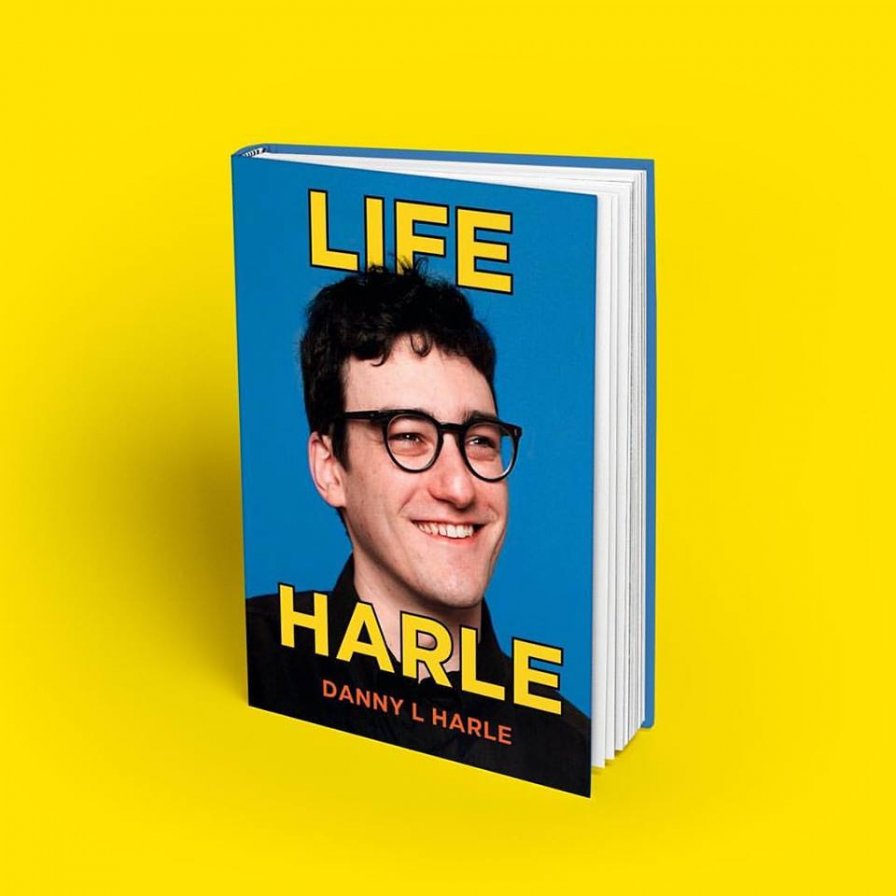Danny L Harle is one of the most celebrated artists on the PC Music label, based on a string of deadly singles and collaborations with everyone from Panda Bear and Tinashe to Carly Rae Jepsen and Charli XCX. His first single, “Broken Flowers,” was what he called an attempt at writing a “completely conventional song,” but the SHAPE-affiliated artist has since branched out stylistically. Harle has said his latest EP, 1UL, is all about “making sad music that people can dance to.”
Lucia Udvardyova spoke to Harle about his label’s new MAJOR status, “pop,” the conceptual strategies of his music, and, of course, arpeggios.
What fascinates you about pop music and its structure?
I used to be solely interested in contemporary classical music, especially pieces that experimented with extremes of sound. Toward the end of my masters degree I started playing electronic music at club nights and soon realised that you can play around with extremes of sound with complete freedom in electronic music in a much more interesting performance context. After being enlightened to electronic music in this way I became interested in certain types of pop, as it had all the extremes of music that I was interested in during my classical phase (extremes of simplicity, complexity, loudness) but also had the added benefit of being super-fun.
I also like music with a ‘mechanical’ element. I’ve always loved instruments like the harpsichord, hurdy-gurdy, and player piano, as I find a kind of profundity in a sound made by a mechanical or robotic instrument that evokes a human emotion. My interest in the ‘industrial’ side of pop music is related to this — I am fascinated by music studios which have managed to design a mechanical formula for making pop music, such as always writing at the same BPM, using the same instruments, using modular but consistent structures etc. Examples of this are SAW, Motown, and (my favorite) Cherion studios.
Pop music has become once again the norm/normative. It’s omnipresent, the same way indie-rock used to be. Do you see it imploding and where do you see pop going in the future?
Pop music is always the norm by definition, the only thing that changes is the audience’s perception of whether they are listening to ‘manufactured’ music or ‘real’ music — the difference between which is pretty much illusory when it reaches the charts. I really like how the pop music culture in Japan and Korea allows for an acceptance and an embrace of the fake rather than a search for the real. The South Korean band ‘Exo’ are marketed to have supernatural powers that control the elements, and that is often incorporated into their videos, and J-pop has acts such as Kyari and Hatsune Miku. I would love to see that mentality reflected in Western pop music.
Can you talk about your association with PC Music — the label, the genre, the aesthetic as such? Has the public and media perception of it influenced you in any way?
I hadn’t heard of all these media outlets before PC started making an impact. I never read them before and I don’t read them now. I’ve never really needed journalists to help me find music, as I do my own research. I obviously read reviews of my stuff out of curiosity, but as I never read reviews about anything else, I tend to find it quite nice if they like my stuff and hilarious if they don’t.
What is your stance regarding the major vs. independent music scene (considering PC Music — the label — is now part of Columbia and yours was the first release of this partnership) — is this dichotomy still relevant nowadays?
No, it’s largely an illusion, and I love illusions!
When you make music, do you approach it from a conceptual aspect?
I was a real ‘Johnny Concept’ when I was at music school, but now I tend to do what strikes me as fun or emotionally evocative. I don’t know how much of my old conceptual self still exists in my subconscious though.
Can you talk about how you make music from the perspective of form/content/idea?
I wrote some music recently by transcribing a sequence I liked in a Bruckner motet and then introducing some interesting modulations to it. It sounded completely different after a bit of experimentation. I tend to write melodies and chords first because that is what I am obsessed with. I usually write them into a ‘super saw’ sound with a low cutoff.
Your music is euphoric, the listener awaits an apex, a sonic culmination. Can you talk about euphoria and how you structure your music in general?
HUGE DROP!!!!!!
You’ve recently recorded an album with Pawel Siwczak entitled Harpsichord Sessions, with a subtitle “the Oldest Newest Old New Music.” Can you talk about it?
Baroque music uses arpeggios all the time because of the nature of the instruments; the same can be said for chiptune music. This limitation produced a way of expressing music that I find particularly emotional, and even though I live in an age where I don’t have to write an arpeggio to express a sustained chord, I choose to stick to arpeggios as I have fallen in love with the sound.
What is “new” in sound nowadays, what innovations can producers bring about? Is “newness” important for a musician/music as such?
Arbitrarily pursuing the ‘new’ is nearly always a bad idea, newness comes as a result of having a thing to say which current technology (or combinations of technology) can’t express.
What is important to you personally about music-making (the effect on the listener, your own feelings from it, its socio-political ramifications, etc)?
The best music for me is emotionally involving and also interesting to listen to. The feeling I most search for in music is euphoric melancholy. I don’t like thinking about the effect on the listener, as it seems to inhibit my creativity. I am a firm believer in Quincy Jones’ saying, “If it really turns you on, there is a chance that it will turn someone else on too.”
Can you talk about your latest projects & plans?
These days I’m interested in making chilled bangers, experimental euphoric music, and HUGE BANGERS. Also video game development and Kids TV shows.
More about: Danny L Harle



